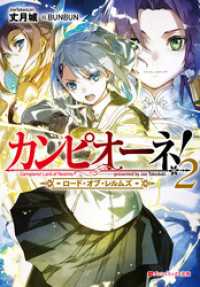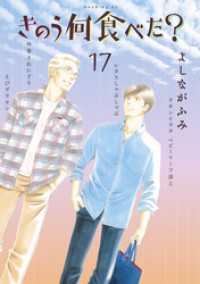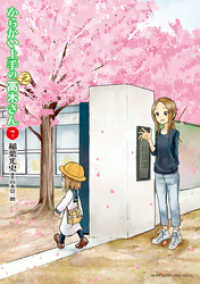- ホーム
- > 洋書
- > 英文書
- > Philosophy
Full Description
Investigates permutations of the terror to examine the complex political and intellectual transformation of literary theorist and novelist Maurice Blanchot between 1933 and 1949.
Between 1933 and 1949 Maurice Blanchot's writings underwent a rather infamous political and critical transformation. Its overarching trope is the terror, which features prominently in his work in 1936, 1941, and 1947. The terror is a reflexive discourse about whether language is bound to reality, and so forceful, or merely a series of empty signs. Marty Hiatt provides an in-depth study of Blanchot's political and critical writings from this period, elaborating his various reckonings with the terror so as to demonstrate the categorical nature of his intellectual shift. Blanchot first calls for an insurrection that would violently expurgate the foreign and execute a Jewish prime minister in order to save France. After the Fall of France, he develops an account of how terror and rhetoric dialectically constitute literature as world construction and world destruction. In his first postwar encounter with Hegel, he links this conception back to history by arguing that it corresponds to revolution. He also doubles the dialectical account of revolutionary history through an account of poetic language that makes contact with an unknowable substrate of existence, resulting in a kind of absolute ambiguity, and seeks to explore and inhabit a form of negativity beyond revolution.
-

- 電子書籍
- カンピオーネ! ロード・オブ・レルムズ…
-

- 電子書籍
- きのう何食べた?(17)
-

- 電子書籍
- 付き合ってることを秘密にしてる生徒会長…
-

- 電子書籍
- からかい上手の(元)高木さん(7) ゲ…
-

- 電子書籍
- 野川イサムのロケの合間に見た花 vol…



